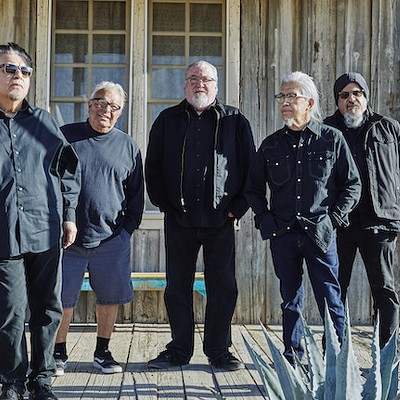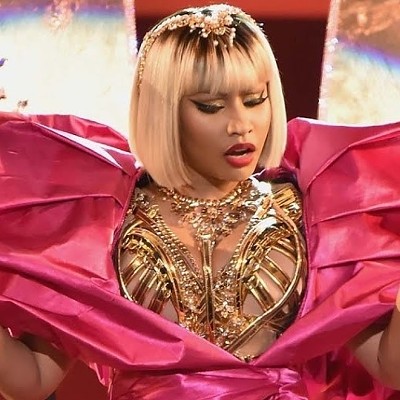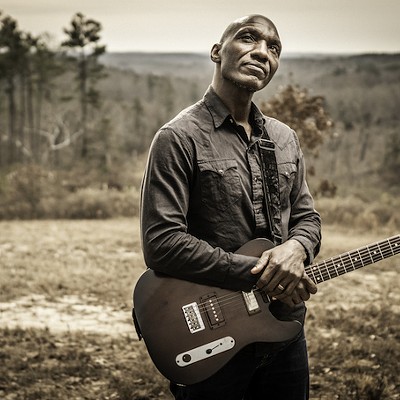In country music, there’s a story as old as time itself that repeats every few years. An artist will rise to a certain level of popularity in the genre, then after a few years, swiftly ditch the country airwaves for poppier, more profitable pastures.
Often, that shift from country to pop happens before the artist even realizes it. They’ll record an album that gets criticized as being “too slicked up,” and then their fate has been sealed — they’ve gone pop. It’s happened to Garth Brooks, Shania Twain, Carrie Underwood. Plenty of solid country artists have found themselves almost entirely separated from the genre where they started, and their fans are madder than hell.
History shows us that country fans get a particular kind of hurt when an act, in their eyes, betrays their sensibilities. When Garth Brooks made the ill-advised move of putting on eyeliner and recording Prince songs, people felt duped. How could all those songs — the ones that sold millions of albums — about the rodeo and cowboys be written by a guy who moonlights as a nonexistent rock star?
Fans felt so betrayed by Brooks that his music was scrubbed from the airwaves. In many places, it still hasn’t returned. The same could be said for the Dixie Chicks – in some circles of country fans, invoking their very name is the equivalent of standing in front of your bathroom mirror and saying "Bloody Mary" three times. Shania Twain is still the biggest-selling woman in country music, and she hasn’t had an album on the charts since releasing a collection of greatest hits in 2013.
Now, it appears as if Little Big Town and The Band Perry are the latest country-music traitors. The Band Perry functionally exited the genre, signing with Interscope Records and recording with R&B kingmaker Pharrell. Little Big Town found themselves in a similar country-fried conundrum after releasing their album Wanderlust, written in part and produced by, you guessed it, Pharrell.
Little Big Town lead singer Karen Fairchild told Billboard pointedly that the eight-song release was “not a country album,” and the country traditionalists had a fit. In response to Fairchild’s comments, Saving Country Music head honcho “Trigger” had an apoplectic meltdown back in May. “It’s just music? What does that even mean?” he wrote. “That quote proves how valueless all of these pop/country collaborations are. It’s not even about the music. The music is just the excuse to keep these celebrity entertainment franchises in the spotlight.”
The most frustrating part of these pedantic and frankly petty complaints about Little Big Town and The Band Perry is that they are, above all, accurate. As country music has become more popular with mainstream listeners, the genre has certainly produced a hell of a lot more celebrities than it has talented musicians. And as a result, supremely talented artists who don’t fit that “celebuartist” mold haven’t been able to find a foothold in contemporary country. That is most definitely a problem.
But let’s get real for a second – those country traditionalists were never listening to Little Big Town or The Band Perry, not even when they were singing about pontoon boats and burying their jilted lovers. Never for a second would someone who considers the “true country music” to have all been recorded before 1985 buy a Little Big Town record. Put bluntly, this is music that was never for us curmudgeonly old farts who like the classic stuff.
It’s for the kids, and it always has been. Back in the early 2000s, young people didn’t give a rat’s ass about country music, especially after the genre ran off the Dixie Chicks. As much as we talk about the death of country music in sonic terms, there was a real chance there for a while that it would end up like Americana – quietly enjoyed by a small number of fiercely dedicated people, and that sure would have been fine.
But that’s not what happened. Instead, executives in Nashville seized on the opportunity to bring more people into the fold, and they were wildly successful. Over the past ten years, country music has become the most popular genre in the U.S., and that sure as hell doesn’t have anything to do with people buying Sturgill Simpson records or going to see all those Red Dirt boys in Texas honky-tonks. It’s because of pop.
It’s absurd for the same country fans who bitch and moan about the genre not getting the respect it deserves to complain about artists that they don’t even like ditching the genre. If you don’t like Little Big Town or Taylor Swift, why do you care that they’re gone? Doesn’t that more effectively achieve the goal of setting country music back on the right track? Of course it does.
Instead of saying “good riddance,” country fans insist on feeling this sense of betrayal that doesn’t really exist. Artists owe loyalty to their fans, not some outdated description of a genre, and it’s pretty damn clear that Little Big Town or Taylor Swift or The Band Perry aren’t going to have any trouble keeping fans.
So instead of pointing your vitriol at bands who are just making music — though, admittedly not very good music — that their fans like, get mad at the radio programmers who have to damn near be threatened at gunpoint to give an “unconventional” artist a shot on the radio. Get mad at the music executives who see dollar signs instead of good tunes. Hell, go ahead and get mad at douchebags like Luke Bryan if you want –– he’s the one masquerading around as a country artist, not Little Big Town.






